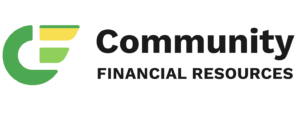
Guaranteed income is in the spotlight, but one key question needs to be asked.
Many have responded to the pandemic by providing direct cash assistance to those most impacted. This has reignited the once-radical idea of guaranteed income, commonly understood as universal basic income (UBI). As this idea gains traction one key question needs to be asked: how are people going to receive these funds?
Since the pandemic, an unprecedented 40 million Americans filed for unemployment, which is set to expire for more than 21 million at the end of July, and imminent evictions may soon make 28 million homeless within the next two months.
The response by hundreds of community-based organizations (CBO), philanthropists, and even the federal government, has been to provide direct cash assistance, reigniting the once-radical idea of guaranteed income, commonly understood as universal basic income (UBI). As this idea gains traction, one key question needs to be asked: how are people going to receive these funds?
Ideas that are Lying Around
Direct cash payments are a highly effective way to provide financial stability to families, and there are many ideas lying around with regards to the spectrum of guaranteed income implementation. These ideas range from science-fiction esc uses of guaranteed income as an ultimate form of compensation when biotech and AI make the human workforce obsolete, to more familiar concepts like reforming and expanding the Earned Income Tax Credit (EITC), a refundable tax credit that low-to-moderate-income working individuals can claim. Other noteworthy ideas include Kamala Harris’ LIFT the Middle Class Act which would offer a sizable cash payment to most middle-class households or Corey Booker’s “baby bond” bill, a novel proposal in which the government would establish a trust fund for every American child.
Regardless of where the idea falls on the spectrum, there is one constant: people need cash. Why? Because outside the fact that wages have been either stagnant and/or declining for the majority of Americans since the late 1970s, and more than 43% of Americans experience income volatility where annual pay fluctuates 25% or more, cash gives people the tools to solve their own problems, whether it’s paying rent, fixing the car transmitter, or enrolling a child in an after-school activity. As a result, the conversation comes back to guaranteed income.
What’s Largely Missing from the Conversation
As politicians tout their best ideas, philanthropists make significant donations toward the cause, and the government frantically distributes stimulus payments, one major piece of the conversation seems to be absent. How are these funds getting into people’s pockets? Most guaranteed income advocates seem to rely on one significant assumption; they assume recipients are banked. Of a similar vein, the tech sector largely promotes the assumption that, if people don’t have banking, they are comfortable and willing to use digital wallets.
Stories of stimulus payment mistakes and critics continue to emerge. One of the key takeaways for many was the issue of direct deposit and the story of the unbanked. Of the 150m individuals expected to receive the stimulus payment, as of late June, more than 35m were issued paper checks during a time in which disbursing emergency funding through physical checks comes with unprecedented health risk. The government slowly realized the many risks (and costs) associated with issuing paper checks and began issuing their own prepaid debit cards. However, the government prepaid debit card is only being issued to certain geographic areas, not all, and many who did receive a government-issued debit card mistook the cards for junk mail or a scam. These numbers also do not include the many Americans eligible for stimulus but are not required to file taxes. None of this is too surprising when considering systemic barriers to racial wealth equity which CFR has sought to address since its founding.
CFR’s Guaranteed Income Work
Community Financial Resources provides creative financial solutions that improve financial stability, protect assets, and establish a foundation to build wealth.
We’re currently partnered with the Stockton Economic Demonstration (SEED), a city-led guaranteed income pilot currently underway, to provide the Focus Card for the $500 monthly stipend. The Focus Card is a US Bank sponsored Visa prepaid debit card that can be used as an on-going bank account. In February 2019, the 125 randomly selected Stocktonians began receiving their $500 monthly stipend.
The de-identified data on how funds are being used confirms the point we all know to be true: people spend their money on their basic needs like food and bills, and it gives them the needed breathing room to support their families.
CFR was also involved in a different form of this work using the Focus Card through a pilot called Paycheck Plus in partnership with Food Bank for New York City, United Way of Greater Atlanta, and MDRC, a nonprofit education and social policy research organization, between 2013 and 2019.
The Paycheck Plus pilot concentrated on expanding the EITC for single workers without dependents in NYC and later expanded to Atlanta. The preliminary findings were consistent with other research on the impact of the federal EITC, indicating that an effective work-based safety net program can increase incomes for vulnerable and low-income individuals and families while encouraging and rewarding work.
Lastly, in the face of COVID-19, we have been similarly using our Focus Cards to facilitate emergency cash distribution throughout the Bay Area. As of July 1, we distributed over $480,000 to more than 750 households and our numbers continue to grow.
These programs have made clear that, as Americans ask what next, the solution will need practical tools for implementation.
For the most up to date information on our GBI work visit:
communityfinancialresources.net/guaranteed-basic-income





